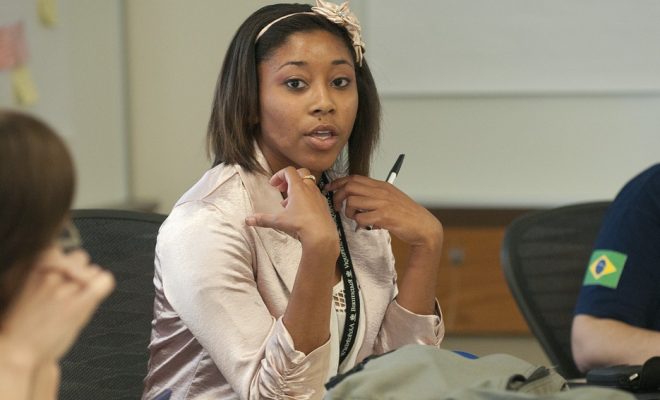HBCU Insights: Cultivating change agents

A column by Dr. Larry Walker
The recent events at University of Missouri, Yale and other post-secondary institutions throughout the United States have dramatically altered the way administrators react to student concerns. Administrators should be on alert; the ouster of the president and chancellor at the University of Missouri was a coordinated effort from activists focused on addressing years of systemic problems. While the student’s efforts should be celebrated it does not represent the end of the fight. Student leaders worked collaboratively like an award winning symphony.
They started off slowly, planned carefully, and finished with a crescendo that created a crack in the foundation. Unfortunately the sudden shift in power between students and school leaders could cause administrators to implement stringent policies that hinder efforts to address student needs. This would be a mistake and could lead to more turmoil on college campuses. Historically post-secondary institutions have been incubators for social change. Ensuring the concerns of students and faculty members are properly considered is vital. To avoid further problems on campus administrators should encourage students to debate and challenge university policies.
Allowing students to freely challenge various programs and/or practices is consistent with democratic principles that the founders of the Constitution sought to protect. School leaders that choose to fight against the tide that is sweeping throughout the country will face criticism from alumni, faculty, media and students. Thus, taking a proactive approach that embraces change would endear administrators to student leaders while allowing them to exercise their constitutional rights. Utilizing antiquated approaches including refusing to meet with students, avoiding the media and ignoring years of discrimination could ignite the campus community.
Students understand that they have the power to force system wide changes. For instance, social media creates a platform for savvy student leaders to brand the movement in terms that people can understand. Millennials understand that posting videos, messages of protests could go viral. Institutions are ill equipped to counter coordinated efforts to highlight macro aggressions that alienate students. Encouraging students to fight for social change could lay the foundation for the next generation of leaders. However, administrators have to allow students to challenge institutional policies that are inconsistent with student needs. Over the next several months transformational university leaders will work with students to address specific concerns. In contrast, laissez-faire leaders will face increased scrutiny and backlash from passionate change agents seeking to upend traditional models. To avoid alienating the campus community school leaders should consider the following:
- Respect student concerns- Some administrators view students concerns as insignificant. Ignoring months or years of concerns could cascade out of control and lead to campus wide rebellion. Consistently meeting with students to discuss various issues could prevent problems from affecting the campus community.
- Don’t pretend that everything is ok- Choosing to pretend that the institution does not have a history of ethnic, racial, gender or sexual orientation discriminatory policies is counter productive. Far too often administrators stand before students, media and suggest that the University of ________ does not have a problem. Shortly after the press conference events on campus spiral out of control and an interim leader is brought in to listen to students.
- Understand the importance of social justice issues- Students are organizing throughout the United States to combat a myriad of issues including community policing. Administrators that fail to measure the school climate could anger student leaders and faculty. Closely monitoring national and international issues important to the student body would prevent school leaders from making embarrassing comments.
- Utilize social media- Administrators that refuse to have a presence on social media will struggle to respond in real time. We live in a fast pace society that celebrates, challenges and embraces events throughout the world. When problems arise (and they will) school leaders can interact with students to address their concerns. Social media gives the campus community the opportunity to discuss issues without alienating subgroups.
College campuses bring together students from diverse backgrounds. Supporting student efforts to assemble is important. Embracing policies that prohibit student expression will create a combustible environment that interrupts learning. Cultivating student leaders interested in economic and political change is critical. Without a new cadre of leaders systems don’t change and fail to meet the needs of underserved and under resourced communities.
Read all of our posts about HBCUs by clicking here.
_________
Dr. Larry J. Walker is an educational consultant focused on supporting historically Black colleges and universities (HBCUs). His research examines the impact environmental factors have on the academic performance and social emotional functioning of students from HBCUs.






